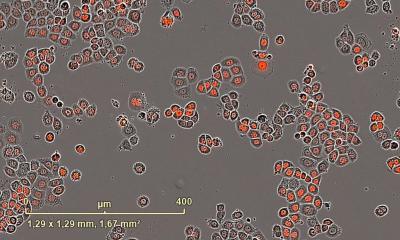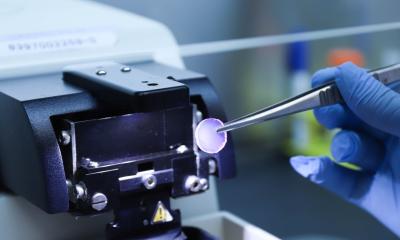Image source: National Cancer Institute (NCI)/Sriram Subramaniam
News • Susceptibility to future drugs
Exploiting the carelessness of cancer cells
Could the ability of cancer cells to quickly alter their genome be used as a weapon against malignant tumours?
Researchers at Uppsala University have succeeded in developing a substance that has demonstrated promising results in experiments on both animal models and human cancer cells. The study is published in the journal Nature Communications.
It is typical of cancer cells that they can quickly alter their DNA; however, in their haste to acquire new mutations, they carelessly discard many of their inherited genetic variations. This may lead to cancer cells only retaining a defective allele of a gene from one parent, whereas healthy cells also have a functioning allele from the other parent. This characteristic of cancer cells may well be an Achilles heel that can be utilised in the development of new drugs.
"We searched for genes of which many people carry both a functioning and defective allele in their DNA. One such gene, NAT2, produces a protein that metabolises a number of drugs and is of particular interest as one allele is often lost during the development of colon and rectal cancer,” explains Tobias Sjöblom of Uppsala University’s Department of Immunology, Genetics and Pathology.
Based on their discovery, the researchers developed a substance that kills cells lacking NAT2 and were also able to demonstrate that it can be used to treat animal models of cancer and tumour cells from patients. "The conditions for treatment exist in 50,000 of the colorectal cancer patients diagnosed globally each year and we will therefore continue working to identify substances with even better properties for pharmaceutical development,” says Tobias Sjöblom.
Source: Uppsala University
11.03.2020










